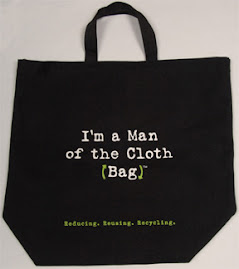Recently, a friend gave me a copy of a popular style magazine that includes an article about how celebrities like Jessica Biel, Vanessa Minnillo, Rachel Bilson, and Hillary Swank are getting a grip “on reusable, eco-friendly (and wallet-friendly) shopping bags.”
As someone who cringes at the thought of using a plastic bag, the article pleased me . . . until I took a closer look. The bags featured are certainly reusable and wallet-friendly (they range in price from $5 to $19) but the question is: Are they really eco-friendly?
I run a company called EcoVixen (http://www.ecovixen.com/) that creates cool cloth bags for men and women. All of my earth-friendly canvas bags are produced in the United States and made of 100 percent recyclable cotton. The soon-to-be-released “Karma” bag – in which EcoVixen joined forces with positive apparel company Karma Threads (http://www.karmathreads.com/) – is not only produced in my home state but is made of 80 percent recycled cotton and 20 percent recycled plastic bottles.
In other words, EcoVixen cloth totes are reusable and eco-friendly. At $30, they are still wallet-friendly, although they aren’t cheap. But you get what you pay for and, for 30 bucks, you’re getting a green bag that has a green pedigree.
Coincidentally, a few months ago I received one of the celeb-approved bags featured in the article as a gift from a friend. The bag has a "Made in China" tag along with a certain sheen that indicates a chemical cocktail was probably used in its creation. Certainly, anytime you pass up a plastic bag – which the EPA says takes up to 1,000 years to decompose – in favor of a reusable bag, you’re doing a good thing . . . but I think it’s just as important to read the bag’s tag to ensure you're buying a product that's green inside and out.
Question of the blog: When you buy a reusable bag, is its green pedigree important to you?
Thursday, March 20, 2008
When is a Reusable Bag NOT Green?
Subscribe to:
Post Comments (Atom)




No comments:
Post a Comment